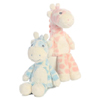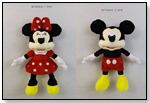|
|
Webkinz Knows What Kids Want How Ganz Is Turning KinzCash to Cold Cash
Kids Are Talking “The demand is huge,” said Ganz communications manager Susan McVeigh, only half-joking that she’s speaking with a “note of panic in her voice” to keep the explosively popular play thing on store shelves. 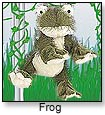 Each of 35 different Webkinz pets — including a panda, a pink poodle, cats, a pig, a monkey and a frog — can be registered online with a “secret” code. Thus, Ganz can track sales among its 30,000 retail customers in the United States and Canada. “We have almost 500,000 owners, so most children own more than one,” McVeigh said. “We don’t do any advertising on the product at all, so this has definitely been a grassroots, kid-to-kid sell for us.” Each of 35 different Webkinz pets — including a panda, a pink poodle, cats, a pig, a monkey and a frog — can be registered online with a “secret” code. Thus, Ganz can track sales among its 30,000 retail customers in the United States and Canada. “We have almost 500,000 owners, so most children own more than one,” McVeigh said. “We don’t do any advertising on the product at all, so this has definitely been a grassroots, kid-to-kid sell for us.”Giving Kids What They Want ... Online and Off After owners register their Webkinz, they click-to-enter a highly interactive cyberspace world where they name the new pet, take it to the vet, design its room and chat with other kids. By playing games and answering trivia quizzes, owners earn KinzCash to buy furniture to decorate their pet’s digs and new outfits to dress it up. The site teaches children to be responsible pet owners and how to save and budget, McVeigh said. 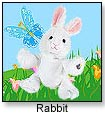 Founded in 1950, Toronto-based Ganz started out in the plush-toy business, expanding its line to include gift items, fashion accessories and home décor. The Webkinz concept came from Howard Ganz, grandson of founder Samuel Ganz, upon analysis of all things kids love. That included parenting and nurturing, virtual worlds that mimic the real world, memory games, dress up, collecting and interactivity versus passive TV watching. Founded in 1950, Toronto-based Ganz started out in the plush-toy business, expanding its line to include gift items, fashion accessories and home décor. The Webkinz concept came from Howard Ganz, grandson of founder Samuel Ganz, upon analysis of all things kids love. That included parenting and nurturing, virtual worlds that mimic the real world, memory games, dress up, collecting and interactivity versus passive TV watching. “It all came from an examination of who kids are and what they like to do and how we can give them all of it in one experience,” McVeigh said. There are other toys with virtual components on the market, but “our concept was to simultaneously offer a plush toy with a Web site, not to introduce a plush, then roll out a Web site.” Expanding Coast to Coast Sold mostly to independent gift and toy stores, Webkinz initially did best on the East Coast. McVeigh doesn’t know why, but said that the rest of the country is catching up. One anonymous retailer told TDmonthly Magazine that the toy sells well in the suburbs but not in cities. There is no way for Ganz to track that online, McVeigh said, because kids aren’t asked for an address when they register, for security purposes. 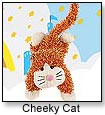 Website feedback does reveal what kids like most about Webkinz, however, and that tends to be the games, quizzes and other activities (updated and changed often) that generate KinzCash, with which they can even make their own virtual movies. Poetry and story-writing contests are big, too. “We get an overwhelming response for that,” McVeigh said. Website feedback does reveal what kids like most about Webkinz, however, and that tends to be the games, quizzes and other activities (updated and changed often) that generate KinzCash, with which they can even make their own virtual movies. Poetry and story-writing contests are big, too. “We get an overwhelming response for that,” McVeigh said. Ganz also gets e-mail from users unafraid to express their likes and dislikes, McVeigh said. “It’s amazing, the ownership and pride they take in the site and how much feel they are part of a community and a relationship. It’s not just a toy to them.” (EDITOR'S NOTE: For an update on Webkinz and to find out what 10Vox's Kookeys have in store for them, read Webkinz Attacked by T Rex in the October 2007 TDmonthly. To read about this year's Webkinz shortage, please see Webkinz: Boom, Bust or Both in the May 2007 TDmonthly.) Writer's Bio: Zan Dubin Scott is president of ZDS Communications, a public relations, marketing and writing agency specializing in sustainable business, healthcare, arts and entertainment. Zan was a staff writer at The Los Angeles Times for 10 years and continues to report and write for the newspaper and other publications. Read more articles by this author
|
| |||||||||||||||||||||||||||||||||
Disclaimer Privacy Policy Career Opportunities
Use of this site constitutes acceptance of our Terms of Use.
© Copyright 2026 PlayZak®, a division of ToyDirectory.com®, Inc.

